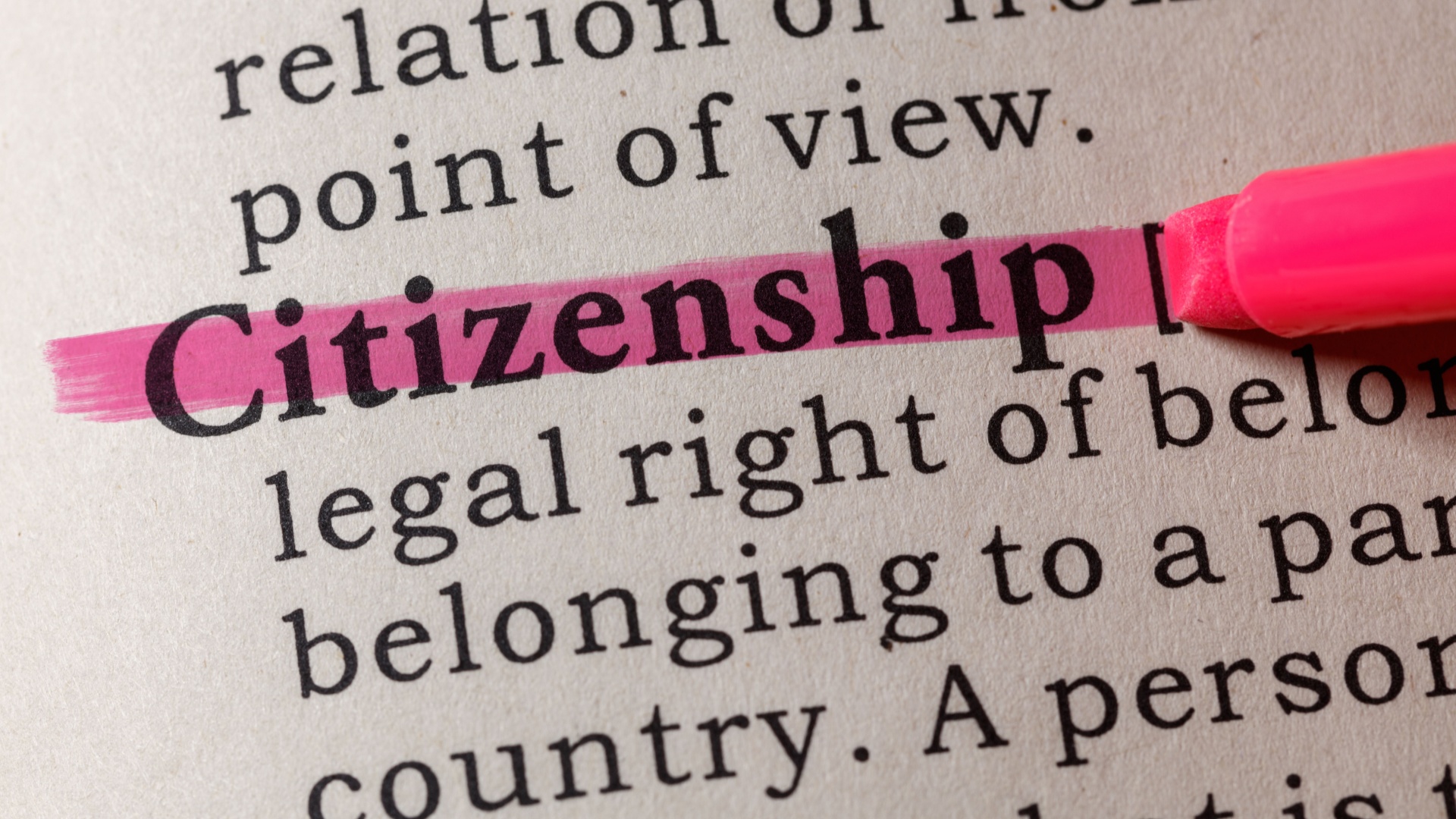Understanding the Due Diligence Process in Citizenship by Investment
19th November 2024

Citizenship by investment (CBI) programmes have become popular for those looking for greater mobility, business opportunities, and a fresh start in a different country.
However, behind every successful application is a thorough process called due diligence. Understanding this step is essential for anyone interested in CBI programmes.
What is Due Diligence in Citizenship by Investment?
Due diligence is the comprehensive review that checks the background of applicants to ensure they meet the criteria of a CBI programme. This process is crucial to maintain the programme’s reputation, ensure national security, and protect the country’s economy. For applicants, it’s a chance to prove their eligibility and good standing.
Key Stages of the Due Diligence Process
1. Initial Screening
This is where the application process begins. Applicants submit personal documents, such as identity papers, proof of income, and financial statements. The initial check ensures that all documents are complete and valid.
2. Comprehensive Background Checks
This is the core of the due diligence process. Independent third-party firms are often hired to perform deep checks on applicants’ backgrounds. These checks cover everything from financial history and sources of funds to criminal records. Applicants are also screened for political exposure (PEP status), as those with significant political ties may be scrutinised more carefully.
3. Governmental Review
Once independent checks are complete, the findings go to the government body that oversees the CBI programme. Here, experts review the results to confirm that the applicant poses no risk to the country’s security or reputation.
4. Final Verification
The final step involves cross-referencing the applicant’s details with international security databases, such as those from Interpol and financial intelligence units. This ensures that no critical detail has been missed.
Documents Required for Due Diligence
Applicants need to provide various documents to support their application. These typically include:
A valid passport
Birth certificate
Proof of address (e.g., utility bills)
Bank statements
Criminal record certificate
Each document plays a role in verifying the applicant’s identity, financial status, and overall history. Providing complete and accurate documents can speed up the due diligence process.
Role of Independent Due Diligence Firms
Independent due diligence firms are an essential part of the CBI process. They specialise in digging deep to uncover any hidden issues in an applicant’s background. By involving these external experts, host countries can ensure the evaluation is unbiased and thorough.
Some leading firms have years of experience in investigative research, making them well-equipped to find red flags that might otherwise go unnoticed.
Common Red Flags in Due Diligence
So, what might cause an application to be flagged? Here are some common issues:
Undisclosed criminal history
: Even minor infractions can raise concerns if not reported.
Inconsistent financial records
: Gaps in bank statements or unexplainable sources of funds can be problematic.
Sanctioned connections
: Links to entities or individuals under international sanctions are immediate red flags.
Applicants need to be upfront and honest. Any attempt to conceal or misrepresent information can lead to a failed application and long-term consequences.
Consequences of Failing Due Diligence
Failing the due diligence process can have serious repercussions. The most immediate is the rejection of the application. In addition, the applicant might be blacklisted, preventing them from applying to other CBI programmes.
Country-Specific Due Diligence Practices
Due diligence standards can vary depending on the country. For instance, Caribbean nations like St Kitts and Nevis and Dominica have established themselves with robust due diligence processes, often partnering with top-tier firms.
Meanwhile, European countries like Malta and Cyprus are known for particularly stringent checks due to higher scrutiny from the European Union.
Ensuring Global Compliance and Transparency
Maintaining high standards in due diligence is not just about national security—it’s about aligning with global expectations.
Countries running CBI programmes must comply with international anti-money laundering (AML) and counter-terrorist financing (CTF) standards. Organisations like the Financial Action Task Force (FATF) set these standards to ensure programmes operate transparently and securely.
For applicants, this means that the process can be intense. Still, it’s also designed to maintain the legitimacy and value of the obtained passport or residency.
Emerging Trends and Future of Due Diligence
Technology is transforming the way due diligence is conducted.
Advanced tools like artificial intelligence (AI) and big data analytics allow for quicker and more detailed background checks. This means that the process, while thorough, is becoming more efficient.
Additionally, countries are reviewing their CBI policies regularly to adapt to global standards and public sentiment.
Tips for Applicants to Navigate the Due Diligence Process
To make the process smoother, applicants should keep these tips in mind:
Be transparent: Full disclosure is key to a successful application.
Prepare documents carefully: Ensure all documents are up to date and certified where necessary.
Work with licensed agents: Experienced consultants can guide applicants through the process and help spot potential issues early.
The Importance of Due Diligence
Due diligence is vital to any CBI programme, protecting both the applicant and the host country. It ensures that only those with a clean record and transparent financial background can obtain citizenship.
While the process can seem daunting, understanding each step and proper preparation can make it much easier. By keeping up with these practices, countries can maintain the integrity of their programmes. At the same time, applicants can approach the process with confidence.
Ready to get started?
Speak to our friendly team of experts today to learn more or to begin your journey.
Recommended for You
Understanding the Due Diligence Process in Citizenship by Investment

Published on: 19th November 2024
Citizenship by investment (CBI) programmes have become popular for those looking for greater mobility, business opportunities, and a fresh start in a different country.
However, behind every successful application is a thorough process called due diligence. Understanding this step is essential for anyone interested in CBI programmes.
What is Due Diligence in Citizenship by Investment?
Due diligence is the comprehensive review that checks the background of applicants to ensure they meet the criteria of a CBI programme. This process is crucial to maintain the programme’s reputation, ensure national security, and protect the country’s economy. For applicants, it’s a chance to prove their eligibility and good standing.
Key Stages of the Due Diligence Process
1. Initial Screening
This is where the application process begins. Applicants submit personal documents, such as identity papers, proof of income, and financial statements. The initial check ensures that all documents are complete and valid.
2. Comprehensive Background Checks
This is the core of the due diligence process. Independent third-party firms are often hired to perform deep checks on applicants’ backgrounds. These checks cover everything from financial history and sources of funds to criminal records. Applicants are also screened for political exposure (PEP status), as those with significant political ties may be scrutinised more carefully.
3. Governmental Review
Once independent checks are complete, the findings go to the government body that oversees the CBI programme. Here, experts review the results to confirm that the applicant poses no risk to the country’s security or reputation.
4. Final Verification
The final step involves cross-referencing the applicant’s details with international security databases, such as those from Interpol and financial intelligence units. This ensures that no critical detail has been missed.
Documents Required for Due Diligence
Applicants need to provide various documents to support their application. These typically include:
A valid passport
Birth certificate
Proof of address (e.g., utility bills)
Bank statements
Criminal record certificate
Each document plays a role in verifying the applicant’s identity, financial status, and overall history. Providing complete and accurate documents can speed up the due diligence process.
Role of Independent Due Diligence Firms
Independent due diligence firms are an essential part of the CBI process. They specialise in digging deep to uncover any hidden issues in an applicant’s background. By involving these external experts, host countries can ensure the evaluation is unbiased and thorough.
Some leading firms have years of experience in investigative research, making them well-equipped to find red flags that might otherwise go unnoticed.
Common Red Flags in Due Diligence
So, what might cause an application to be flagged? Here are some common issues:
Undisclosed criminal history
: Even minor infractions can raise concerns if not reported.
Inconsistent financial records
: Gaps in bank statements or unexplainable sources of funds can be problematic.
Sanctioned connections
: Links to entities or individuals under international sanctions are immediate red flags.
Applicants need to be upfront and honest. Any attempt to conceal or misrepresent information can lead to a failed application and long-term consequences.
Consequences of Failing Due Diligence
Failing the due diligence process can have serious repercussions. The most immediate is the rejection of the application. In addition, the applicant might be blacklisted, preventing them from applying to other CBI programmes.
Country-Specific Due Diligence Practices
Due diligence standards can vary depending on the country. For instance, Caribbean nations like St Kitts and Nevis and Dominica have established themselves with robust due diligence processes, often partnering with top-tier firms.
Meanwhile, European countries like Malta and Cyprus are known for particularly stringent checks due to higher scrutiny from the European Union.
Ensuring Global Compliance and Transparency
Maintaining high standards in due diligence is not just about national security—it’s about aligning with global expectations.
Countries running CBI programmes must comply with international anti-money laundering (AML) and counter-terrorist financing (CTF) standards. Organisations like the Financial Action Task Force (FATF) set these standards to ensure programmes operate transparently and securely.
For applicants, this means that the process can be intense. Still, it’s also designed to maintain the legitimacy and value of the obtained passport or residency.
Emerging Trends and Future of Due Diligence
Technology is transforming the way due diligence is conducted.
Advanced tools like artificial intelligence (AI) and big data analytics allow for quicker and more detailed background checks. This means that the process, while thorough, is becoming more efficient.
Additionally, countries are reviewing their CBI policies regularly to adapt to global standards and public sentiment.
Tips for Applicants to Navigate the Due Diligence Process
To make the process smoother, applicants should keep these tips in mind:
Be transparent: Full disclosure is key to a successful application.
Prepare documents carefully: Ensure all documents are up to date and certified where necessary.
Work with licensed agents: Experienced consultants can guide applicants through the process and help spot potential issues early.
The Importance of Due Diligence
Due diligence is vital to any CBI programme, protecting both the applicant and the host country. It ensures that only those with a clean record and transparent financial background can obtain citizenship.
While the process can seem daunting, understanding each step and proper preparation can make it much easier. By keeping up with these practices, countries can maintain the integrity of their programmes. At the same time, applicants can approach the process with confidence.
Need professional financial advice?
We have 18 offices across the globe and we manage over $2billion for our 20,000+ clients
Recent Blog Posts
- What’s Better: Trump’s Gold Card vs the EB-5 Visa?
- Portugal’s Golden Visa: What Three Years of Change Tell Global Citizens About 2026
- How Do H-1B Visa Changes Affect the EB-3 & EB-5 Visas?
- Double Tax Agreements: What are They and How Do They Work?
- Banking Abroad: Best Practices for Dual Citizens Managing Cross-Border Finances









